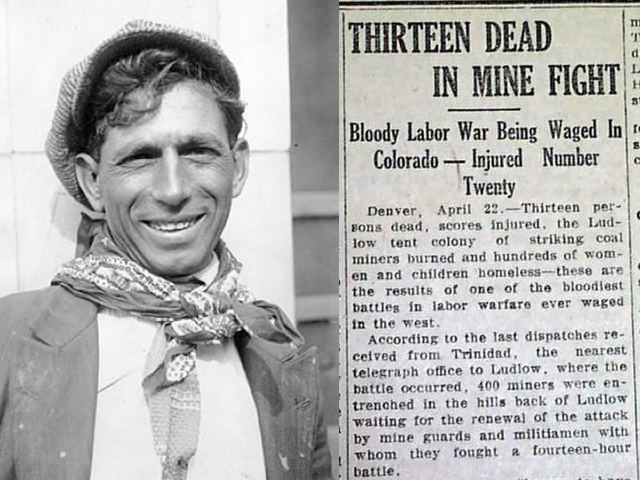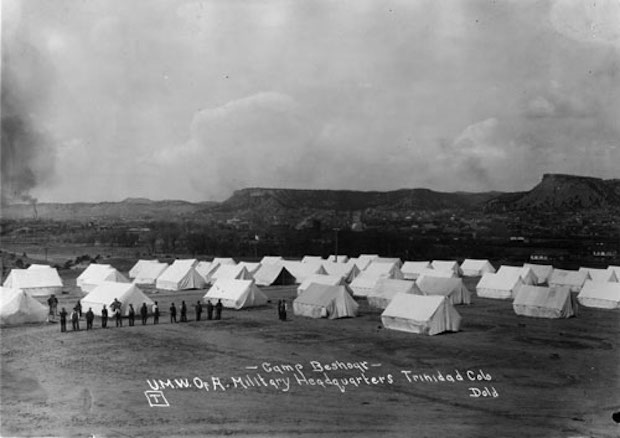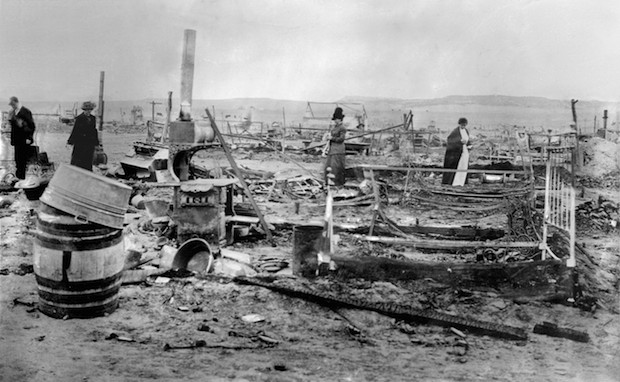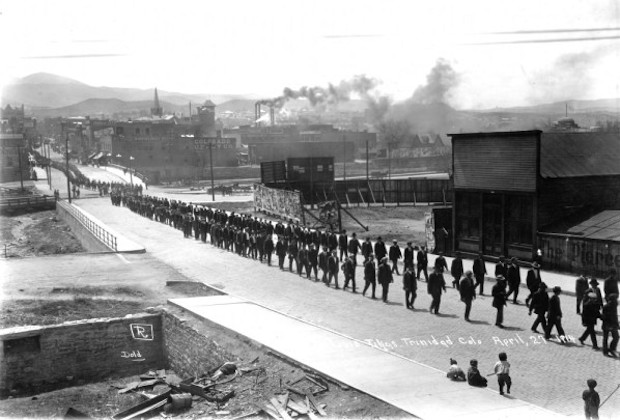
As we celebrate Labor Day today across the United States, we should take a moment and remember the legacy of a Greek immigrant from Crete named Louis Tikas whose heroism and activism a century ago set the stage for the reforms to American labor laws and workers’ rights. Not much has been written about the story, wit the exception of an important book called Buried Unsung.
Tikas was born in Crete and emigrated to the United States with thousands of his fellow islanders and countrymen. Official and unofficial documents point to an astonishing 40,000 Greeks working in Rocky Mountain mines, mills and railroads before World War I.
Tikas, whose full name was Elias Spantidakis, was shot and killed by US government militiamen on April 20, 1914 along with over dozen others— including women and children. The event is known as the Ludlow Massacre and involved a colony of workers— mainly immigrant workers from Greece, Italy and elsewhere, who were in the midst of a 14-month strike at a coal mine operated by Colorado Fuel & Iron Company owned by mogul John D. Rockefeller.
The conditions for the workers were atrocious and the immigrants, most of whom spoke no English, were taken advantage of by their American corporate bosses on a regular basis. Tikas organized a strike to demonstrate against the horrid conditions. More than 1,000 people— mostly Greek workers and their families— were immediately evicted from company housing near the mines.

They set up a make-shift camp just outside the gates of the company. Within weeks a tent-city had been created as other workers joined the strikers, in protest against the Rockefeller company. As the striking miners and their families celebrated Greek Orthodox Easter Sunday, the governor of the state of Colorado sent in the state militia— at the request of the company.
Machine gun fire began to rip indiscriminately through the camp from the militia, sending the camp into chaos. The miners fought back but were eventually overpowered. Tikas, who throughout the day was seen helping women, children and the wounded escape the carnage was captured by the militia. He was found shot in the back three times. His body was left unburied for several days. The battle ended only with the arrival of Federal troops and a complete burning of the camp.

The scorn of the nation was heaped on Rockefeller and his son. John D. Rockefeller, Jr was forced to accept reforms and better conditions for workers. A United States Commission on Industrial Relations conducted hearings in Washington and the subsequent 1,200 page report suggested many reforms sought by the unions, including the establishment of a national eight-hour work day and a ban on child labor.
Historian Howard Zinn called Tikas’ murder by members of the Colorado militia “culminating act of perhaps the most violent struggle between corporate power and laboring men in American history”.
 Tikas was laid to rest on April 27, 1914, in a funeral attended by hundreds of his fellow miners in a procession that was said to be more than a mile long.
Tikas was laid to rest on April 27, 1914, in a funeral attended by hundreds of his fellow miners in a procession that was said to be more than a mile long.
To mark the centennial of the event this year, Greek filmmakers Lamprini Thoma and Nickos Ventouras created a documentary called “Palikari” which charts the story of the strike and Tikas’s murder, as it survives in oral and family traditions, as well as in official history. They interviewed historians and artists, some of them direct descendants of those striking miners.
Watch the trailer of the documentary “Palikari” here:
No comments:
Post a Comment